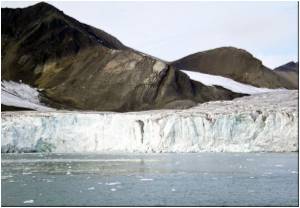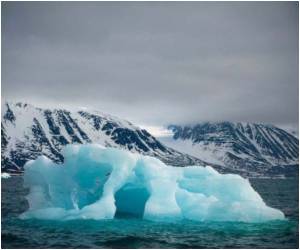A new study reveals, with sea ice at its lowest point in 1,500 years, ecological communities in the Arctic are being affected by its continued and even accelerated melting over the next decades.

"Our team set out to explore the 'domino effect' of sea-ice loss on marine animals, as well as on land-dwelling species living adjacent to ice," Post said.
"Arctic sea ice should be thought of as a biome or an ecosystem and the effects of melting and warming on microorganisms living under ice in this biome already have received much attention. However, those animals living near the ice likely are feeling the effects, as well," he said.
Post explained that, after reaching its record low in August of 2012, sea ice is expected to continue to melt at an accelerating rate.
"Over the entire period covered by the record, Arctic sea ice has declined by more than 86,000 square kilometers-a space slightly larger than the state of South Carolina-per year," Post said.
"That's an area of critical habitat for many species and the rate of loss is increasing," he said.
Advertisement
The high albedo of ice, Post added, will be replaced by a much less-reflective, darker surface of open water-and the effect will be accelerated warming and thus, accelerated melting.
The study is published in the journal Science.
Source-ANI









